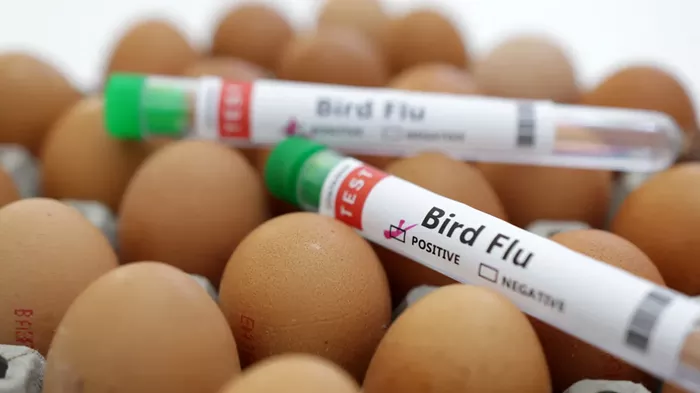In a growing health concern, the Los Angeles Department of Public Health confirmed that another raw pet food brand, Monarch Raw Pet Food, has been linked to a bird flu outbreak, after an indoor cat tested positive for the virus. Four other cats in the same household are believed to have been exposed. Monarch Raw Pet Food is sold at various farmers’ markets across California, sparking new concerns about the safety of raw diets for pets.
This latest case follows a report last week from Oregon, where a cat tragically died after consuming raw food contaminated with the H5N1 bird flu virus. The company behind the affected cat food, Northwest Naturals, has since issued a recall for specific batches of its turkey-based products. This marks another alarming instance of bird flu being transmitted to domestic cats through raw pet food.
In light of these incidents, Los Angeles health officials have issued a strong advisory urging pet owners to avoid feeding their pets raw meat or milk products. These foods pose a significant risk of contamination from viruses like bird flu and harmful bacteria. As experts continue to examine the link between raw pet food and bird flu, many are emphasizing that these types of food—often sold as freeze-dried or raw frozen—are far more likely to carry dangerous pathogens compared to commercial pet food that undergoes heat treatment and pasteurization processes.
Dr. Jane Sykes, a professor at the University of California-Davis School of Veterinary Medicine, noted that felines are particularly vulnerable to bird flu. “By late 2024, there had been over 25 cases of domestic cats infected with the virus, most of whom were exposed to contaminated raw diets,” she explained. While the number of pet owners feeding their cats raw diets remains relatively small—estimated at just 2% according to a 2024 American Pet Products survey—the risk is significant when contaminated products reach the market.
The concern over raw pet food isn’t new. In addition to bird flu, raw pet food has been associated with bacterial infections like Salmonella, which can cause serious illness in both pets and their owners. Unlike traditional pet foods, which are heat-treated to eliminate such risks, raw diets may contain harmful microorganisms that cooking or pasteurization would normally destroy.
“Freezing, which is often used in raw food preservation, doesn’t kill viruses,” said Dr. J. Scott Weese, a professor at Ontario Veterinary College in Canada. “In fact, it’s a method that can actually help preserve viruses, making them viable for longer periods.”
For pet owners concerned about these risks, experts recommend avoiding feeding raw food or treats to their pets. This is particularly true for freeze-dried food, which can sometimes be mistakenly assumed to be safe due to the freeze-drying process.
The recent incidents in Oregon and California highlight a troubling pattern. On December 20, Los Angeles County officials confirmed multiple cases of bird flu in domestic cats that had eaten raw food products. Symptoms of bird flu in cats include respiratory distress, fever, loss of appetite, and neurologic signs such as stumbling, seizures, or even blindness. Sadly, these infections are often fatal, with an estimated 67% of infected cats dying from the virus.
Dr. Stephen Cole, an assistant professor of microbiology at the University of Pennsylvania, warns that this is only the tip of the iceberg. “Not all pet owners will seek testing for their deceased pets, so we are likely missing many undiagnosed cases,” he said. Researchers are continuing to study the extent of the outbreaks and how the virus is spreading, but early indications suggest more cats may have been infected by contaminated raw pet food.
Experts recommend that pet owners take several precautions to protect their cats from bird flu and other infectious diseases. If feeding a raw diet, it’s crucial to source these foods from trusted suppliers and ensure they are properly handled and prepared. Additionally, reducing outdoor exposure, especially in areas with high wild bird activity, can lower the risk of exposure to the virus.
“If you have an indoor-outdoor cat, try to keep them inside as much as possible,” said Dr. Weese. “Additionally, avoid bird feeders, as they can attract wild birds that carry the virus.”
While the FDA continues to investigate the source of contaminated food products and track the spread of bird flu in cats, it’s clear that these incidents serve as a reminder for pet owners to carefully consider the risks associated with raw diets. In the meantime, health authorities continue to caution against feeding raw meat and milk products to pets, especially those that may come from farms with a known history of avian flu.
The Food and Drug Administration (FDA) is closely monitoring cases of bird flu infections among cats in several western states, including California, Colorado, Oregon, and Washington. No human infections have been reported, but the FDA is working with state and federal agencies to determine the specific foods involved in the outbreaks and gather more information about the animals and their diets.
“We urge pet owners to be cautious about feeding raw foods from farms with known outbreaks,” said FDA spokesperson Janell Goodwin. “If you’re unsure about the source of your pet’s food, it’s safest to cook or pasteurize it thoroughly.”
With more cases of bird flu emerging in cats linked to raw pet food, this serves as a crucial reminder for pet owners to consider the health risks associated with raw diets. While the FDA continues to investigate, the focus on consumer awareness and the need for proper food handling practices has never been more urgent. By taking appropriate precautions and staying informed, pet owners can help protect their beloved animals from the growing threat of avian flu and other related diseases.
Read more:
- Breakthrough Nasal Test Identifies Asthma Subtypes With Greater Precision
- Arctic Freeze Hits The UK: Snow, Ice, And Health Warnings Take Over
- Alcohol And Health: The Controversy Behind U.S. Dietary Guidelines And Public Health


